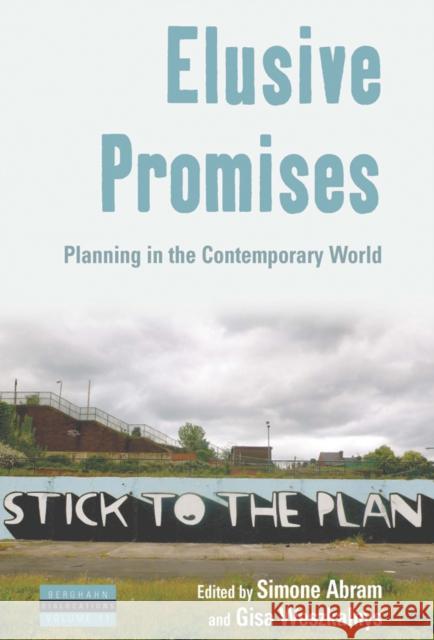Elusive Promises » książka
Elusive Promises
ISBN-13: 9780857459152 / Angielski / Twarda / 2013 / 196 str.
Planning in contemporary democratic states is often understood as a range of activities, from housing to urban design, regional development to economic planning. This volume sees planning differently-as the negotiation of possibilities that time offers space. It explores what kind of promise planning offers, how such a promise is made, and what happens to it through time. The authors, all leading anthropologists, examine the time and space, creativity and agency, authority and responsibility, and conflicting desires that plans attempt to control. They show how the many people involved with planning deal with the discrepancies between what is promised and what is done. The comparative essays offer insight into the expected and unexpected outcomes of planning (from visionary utopias to bureaucratic dystopia or something in-between), how the future is envisioned at the outset, and what actual work is done and how it affects people's lives. Simone Abram is Reader at both Durham University and Leeds Met University, and has worked in interdisciplinary planning departments at Sheffield and Cardiff Universities. Her publications include Culture and Planning (Ashgate, 2011), Rationalities of Planning (with Jonathan Murdoch, Ashgate, 2002), and Anthropological Perspectives on Local Development (co-edited with Jacqueline Waldren, Routledge, 1998). Gisa Weszkalnys is Lecturer in the Department of Anthropology at the London School of Economics. Her book, Berlin, Alexanderplatz: Transforming Place in a Unified Germany (Berghahn Books, 2010) tackles the intricate politics of place in contemporary Berlin. She is currently working on a manuscript focusing on the temporality and materiality of oil exploitation, specifically in West Africa.
Planning in contemporary democratic states is often understood as a range of activities, from housing to urban design, regional development to economic planning. This volume sees planning differently-as the negotiation of possibilities that time offers space. It explores what kind of promise planning offers, how such a promise is made, and what happens to it through time. The authors, all leading anthropologists, examine the time and space, creativity and agency, authority and responsibility, and conflicting desires that plans attempt to control. They show how the many people involved with planning deal with the discrepancies between what is promised and what is done. The comparative essays offer insight into the expected and unexpected outcomes of planning (from visionary utopias to bureaucratic dystopia or something in-between), how the future is envisioned at the outset, and what actual work is done and how it affects peoples lives.Simone Abram is Reader at both Durham University and Leeds Met University, and has worked in interdisciplinary planning departments at Sheffield and Cardiff Universities. Her publications include Culture and Planning (Ashgate, 2011), Rationalities of Planning (with Jonathan Murdoch, Ashgate, 2002), and Anthropological Perspectives on Local Development (co-edited with Jacqueline Waldren, Routledge, 1998).Gisa Weszkalnys is Lecturer in the Department of Anthropology at the London School of Economics. Her book, Berlin, Alexanderplatz: Transforming Place in a Unified Germany (Berghahn Books, 2010) tackles the intricate politics of place in contemporary Berlin. She is currently working on a manuscript focusing on the temporality and materiality of oil exploitation, specifically in West Africa.











